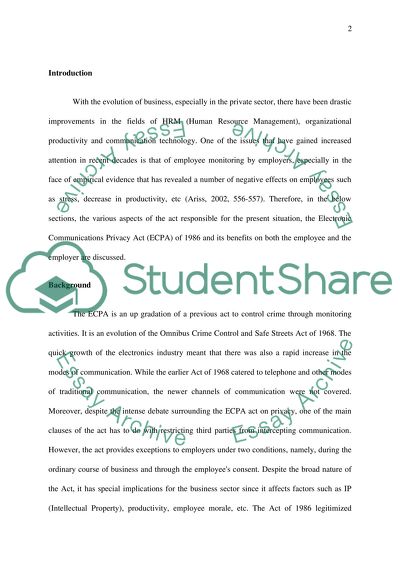Cite this document
(“Electronic Communications Privacy Act - Advantages from an Employer Research Paper”, n.d.)
Retrieved from https://studentshare.org/information-technology/1426246-electronic-communications-privacy-act-advantages
Retrieved from https://studentshare.org/information-technology/1426246-electronic-communications-privacy-act-advantages
(Electronic Communications Privacy Act - Advantages from an Employer Research Paper)
https://studentshare.org/information-technology/1426246-electronic-communications-privacy-act-advantages.
https://studentshare.org/information-technology/1426246-electronic-communications-privacy-act-advantages.
“Electronic Communications Privacy Act - Advantages from an Employer Research Paper”, n.d. https://studentshare.org/information-technology/1426246-electronic-communications-privacy-act-advantages.


